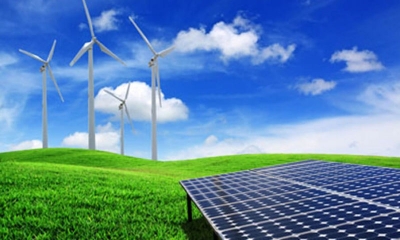China using climate change ruse to push own geopolitical interest
By IANS | Published: March 30, 2021 01:02 PM2021-03-30T13:02:22+5:302021-03-30T13:20:17+5:30
New Delhi, March 30: Increasing evidence is emerging to show that China is cleverly using the climate change issue ...

China using climate change ruse to push own geopolitical interest
New Delhi, March 30: Increasing evidence is emerging to show that China is cleverly using the climate change issue to push its own geopolitical interests rather than being guided by the objective of global good.
Experts are of the view that Beijing's huge thrust on electric vehicles is not so much about tackling climate change but a strategy to enhance China's automobile industry which lags far behind the western countries, Japan and South Korea in the current internal combustion engine dominated scenario.
While Beijing has been making tall claims of fighting climate change the harsh ground reality is that China alone is responsible for generating 53 per cent of the world's total coal-fired power in 2020 which is a nine percentage points jump from 2015, a global study released on Monday shows.
Although China added a record 71.7 gigawatts (GW) of wind power and 48.2 GW of solar energy last year, it was the only G20 nation to see a significant jump in coal-fired generation, according to Ember, a London-based energy and climate research group.
The country has promised to reduce its dependence on coal in a bid to bring emissions of climate-warming greenhouse gas to a peak before 2030 and become "carbon neutral" by 2060 but is merrily going ahead with coal
New coal-fired power installations in China reached 38.4 GW in 2020, more than three times the amount built by the rest of the world.
Although China has reduced the share of coal in total energy consumption from around 70 per cent a decade ago to 56.8 per cent last year, but absolute generation volumes still rose 19 per cent over the 2016-2020 period, Ember estimates show.
In its 2021-2025 five-year plan, China vowed to "rationally" control the scale and pace of development in the construction of coal-fired power, but that appears to be in large part of a global image building exercise.
Energy expert Daniel Yergin told Nikkei Asia magazine in an interview that China's decision to aim for net zero emissions by 2060 was not purely about tackling pollution or climate change, but rather a more strategic calculation to advance its global presence.
He said these decisions were linked to a strategy to enhance its electric vehicle industry and an intention to reduce oil imports.
Daniel Yergin is the vice chairman of IHS Markit. In his latest book, "The New Map: Energy, Climate, and the Clash of Nations," he writes about how the energy transition is influencing energy geopolitics.
With tensions between the U.S. and China rise over numerous global issues, he stressed that China's concerns were climate change, urban pollution and rapidly rising oil imports, as well as challenging Japan, the U.S, South Korea and western Europe in the global automobile market.
He said China would not be able to catch up with the Europeans, Japanese or Americans on manufacturing cars with internal combustion engines, but that China was ahead in EV technology, production and consumption almost half the world's EVs are in China. The Chinese push for EVs was due to climate change and the desire to be competitive in the global economy, he said.
Some auto companies in Japan are betting on fuel cell vehicles as an alternative, but Yergin said: "the policy decisions in China, the world's largest auto market, as well as those in the US and Europe, are forcing the decision to go electric." Global automakers are now directing their new investment towards EVs, and government regulations and financial penalties on emissions are leaving the industry with little choice.
Chinese President Xi Jinping recently gave a speech reminding the world that China is a huge growth market, and that countries should not make the mistake of shutting themselves out of it.
If US-China relations deteriorate, that would put countries like Japan in a difficult position, because of its strategic relationship with the US "This is a big geopolitical problem, and this is a 2021 problem," Yergin told Nikkei.
(This content is being carried under an arrangement with indianarrative.com)
( With inputs from IANS )
Disclaimer: This post has been auto-published from an agency feed without any modifications to the text and has not been reviewed by an editor
Open in app